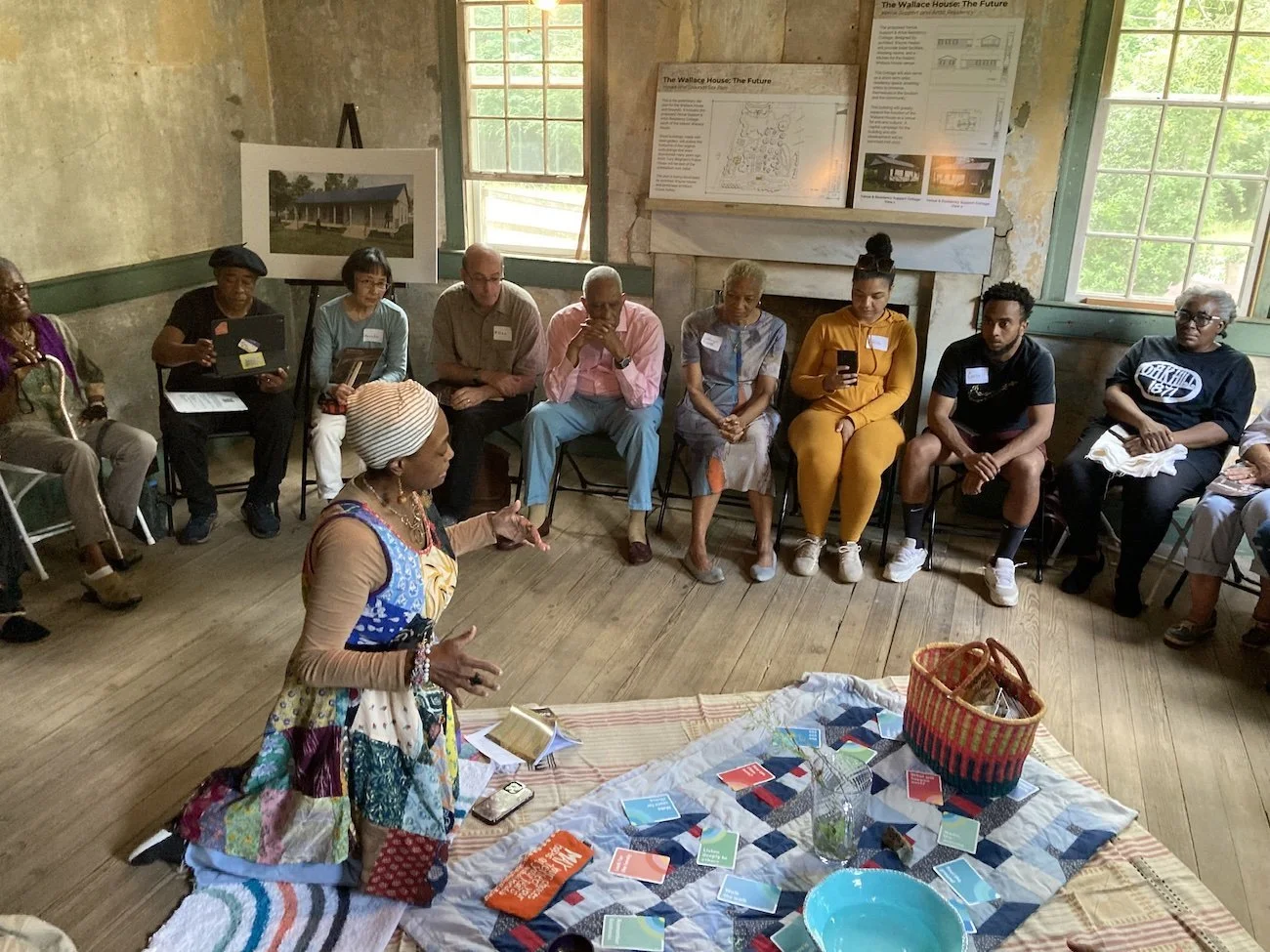Interview with Salaam Green
I recently had a conversation with one of Pulley’s newest signees, Salaam Green, an Alabama native and poet in search of healing. Green was recently selected as the city of Birmingham’s inaugural Poet Laureate.
In the following interview, she shares her background in rural poetics, as well as her hopes for the future of the community in Harpersville, Alabama.
Considering that Pulley Press seeks to publish poetry by poets who write from rural places, what is your relationship with rurality? How do you push past rural stereotypes in your poetry?
I am a daughter of the Black Belt of Alabama. I am a SOUTHERN-HER, a black woman who is attached to her rural roots like a bird is to its beak. I write and feel the story of rural America as close kinship. I believe in rural Americans and their ways of life and living. I have chosen to embrace its stories, lifestyles, quirks, and rich history in their entirety. I have grown up alongside briar patches and peach trees and found my resilience on my grandmother’s porch. I have grieved for myself in the cow patch fields outside my home. I think rural life is pastoral, but it also deserves scholarly narratives and to be seen beyond the white and classist gaze of America. I never think about pushing past rural stereotypes because I believe poetry pulsates and invites us into gradient areas, providing a historical lens that can haunt and as well as heal us.
Could you tell me about growing up in the Black Belt of Alabama and how writing has been a part of your life so far?
I grew up in Greensboro, Alabama and was first introduced to writing as a small child. My growing up home had a large oak tree outside, and each morning I would go underneath the oak tree with my dog Brownie and my diary with the golden key. I discovered that writing in nature brought me peace. My imagination was formed under that tree and a budding writer was unearthed.
The Black Belt of Alabama has to be the most literary rich space in all of Alabama. It shaped who I am and my writing, and fostered my love for history, justice, and culture.
Who were your writing influences, and who inspired you to write poetry?
My writing influences growing up were Toni Morrison, Alice Walker, Gloria Naylor, Maya Angelou, Nikki Giovanni, Rita Dove, Natasha Treadway, as well as Alabamians Angela Johnson, Michelle Richmond, and Sonia Sanchez.
I was inspired to write by my middle school English teacher, Mrs. Simpson. In her class, I finally understood my voice. I passed out green journals everyday and insisted that the class journal in a circle. One day I told Mrs. Simpson about my hopes of becoming a journalist, and we walked down to the principal's office hand in hand to ask him if we could start a journalism club. This is my first memory of being a confident writer.
What was your process as you were composing your award-winning poem, "Where the World Comes to Create”?
I wanted to bring to life rural artifacts, small town wonders, and the archeology of Southern roots through a poem. The diverse creations that only can be found in rural Alabama such as “Juke Joints and the red clay soil” all inspired me to speak of Alabama as where the world comes to create.
I read a bit about your company, Literary Healing Arts, and I would love to hear more about the idea behind this organization as well as your thoughts on how writing can be therapeutic.
I believe writing can be used as a tool to support the regulation of the nervous system. Writing is beneficial in reducing stress and helping one express themselves even during challenging times. I think writing helps us pause and reflect while giving us clear insight into ourselves. That is why I founded Literary Healing Arts and began conducting Writing to Heal workshops. I also became an expressive writing facilitator through Duke University and a Certified Listener Poet to enhance my work as an Artist in Residence in the healthcare environment.
Finally, I’m really interested in your work so far on your anticipated book with Pulley. Could you tell me about what brought you to this project, and the voices you hope to amplify in your work?
For many years I have served as a Racial Healer, certified facilitator through the Kellogg Foundation. During the height of the pandemic and racial unrest earlier this year, I began working in rural areas to use art and racial healing as a way to begin conversations and dialogue in small town America. Some of my art and racial healing work began with the founders of Klein Arts and Culture. I also became a teaching writer, which involved instructing sixth grade students in creative writing and creating a curriculum around enslavement and the Wallace House descendants. Out of that work, I edited a book of poems created by the sixth graders and we had a reading at the Wallace House.
Through these works and other events within Harpersville and Shelby County, I fell in love with the people and saw how our stories are intertwined. I believe this work is heart and history work.
I hope to bring liberation to [the memories of] enslaved women and their children, as well as shed light on the voices of descendants who are living in the area today. I want their voices to be amplified and I hope the poems do them justice.
Interview has been edited and condensed.

